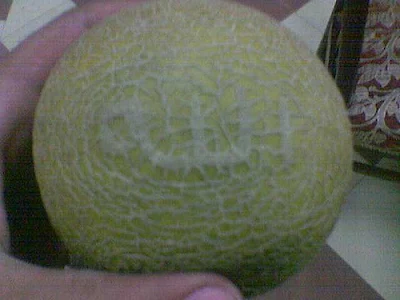1. Understanding Miracles in Islam
Miracles in Islam are acts that defy the norms of nature, performed by the Prophets to affirm their message. These acts serve as proof of Allah’s power and authority. The term معجزہ (Mu'jiza) literally means something that causes others to be incapable of replicating or understanding it. They can be found throughout Islamic history, from the miraculous stories of Prophet Moses (PBUH) parting the sea to the night journey of Prophet Muhammad (PBUH).
One of the most important aspects of Islamic miracles is that they are always linked to divine wisdom. They are not random acts but serve a higher purpose of guiding humanity toward the truth.
2. The Miracles of Prophet Muhammad (PBUH)
Prophet Muhammad (PBUH), as the final messenger, was blessed with numerous miracles, many of which are recorded in the Quran. Among the most well-known is the Miracle of the Quran itself. The Quran is regarded as a living miracle, unmatched in its language, style, and wisdom. It continues to be a source of guidance for millions of Muslims around the world.
Another significant miracle associated with Prophet Muhammad (PBUH) is the Isra and Mi’raj – the night journey to the heavens. During this miraculous event, the Prophet was transported from Mecca to Jerusalem and then ascended to the heavens, meeting the previous prophets and witnessing the divine kingdom.
3. The Quran: A Living Miracle
The Quran is often referred to as the most enduring miracle in Islam. Unlike other miracles that were limited to a specific time and place, the Quran transcends time. Its linguistic excellence, scientific accuracy, and profound wisdom make it a miracle that continues to astound scholars and believers alike. Some examples of the Quran’s miraculous nature include:
- Scientific Miracles: The Quran mentions facts about embryology, the expansion of the universe, and the formation of rain—centuries before modern science discovered these phenomena.
- Linguistic Miracles: The eloquence of the Quran in Arabic remains unmatched, even by the greatest poets of ancient Arabia.
These aspects of the Quran are a testament to its divine origin and proof of Allah’s knowledge and power.
4. Nature as a Reflection of Allah’s Miracles
In Islam, nature is considered a reflection of Allah’s creativity and power. The beauty of the natural world, from the vastness of the oceans to the intricate design of a single flower, is seen as a miracle of Allah. The Quran repeatedly invites believers to reflect upon the signs of Allah in nature:
- The Alternation of Day and Night: “Verily, in the alternation of the night and the day, and in all that Allah has created in the heavens and the earth, are signs for those who fear Him.” (Quran 10:6)
- The Miracle of Rain: Rain is described as a divine blessing that revives the earth after it has been barren. The way water is delivered, stored, and used for the growth of life is a reflection of Allah’s mercy.
5. Modern Miracles: Events and Signs of Allah
While many miracles of the Prophets occurred in ancient times, believers today still witness signs of Allah’s power in the modern world. From unexplained phenomena in the natural world to remarkable instances of survival, Muslims believe that these are reminders of Allah’s presence.
Some of the modern-day miracles often associated with Islam include:
- The Preservation of the Quran: Despite centuries of attempts to distort or destroy it, the Quran remains unchanged, with millions of Muslims memorizing its text.
- Miraculous Recovery from Illness: Stories of people overcoming terminal illnesses after prayers and supplications are seen as acts of divine intervention.
- Islam’s Spread Across the Globe: Despite facing opposition, Islam continues to grow worldwide, with many converts citing their spiritual connection with the teachings of the Quran as a miracle in their own lives.
6. Islamic Pictures Depicting Miracles
Islamic pictures serve as a powerful way to connect with the miraculous. These images often capture natural wonders that evoke a sense of divine greatness, reminding believers of Allah’s omnipresence.
- Sunset Over the Kaaba: The Kaaba in Mecca is a symbol of unity for Muslims. Pictures of the Kaaba during sunset often leave viewers in awe of Allah’s majestic creation.
- The Miracle of Zamzam Water: Zamzam water, located near the Kaaba, is believed to be a miraculous well that has never dried up. Pictures of pilgrims drinking from Zamzam remind us of the miracles Allah grants to the faithful.
- The Stars and the Universe: Pictures of the night sky filled with stars are often shared in Islamic circles, as they remind believers of Allah’s creation of the vast universe. The Quran speaks of the stars as guides for mankind, both physically and spiritually.
7. Miracles in Islamic History
Throughout Islamic history, countless miracles have been recorded. Some of the most notable include:
- The Parting of the Red Sea: As described in the Quran, Prophet Moses (PBUH) was able to part the Red Sea by Allah’s command, allowing the Israelites to escape Pharaoh’s army.
- The Birth of Prophet Jesus (PBUH): The miraculous birth of Prophet Jesus without a father is another significant event in Islam, showing Allah’s ability to do anything.
- The Spider’s Web at the Cave of Thawr: When Prophet Muhammad (PBUH) and Abu Bakr (R.A) were hiding in the cave from their enemies, Allah caused a spider to spin a web across the cave entrance, making it appear empty.
These events not only strengthen faith but also serve as reminders of the continuous presence of Allah’s power in the world.
8. The Role of Faith in Recognizing Miracles
Recognizing miracles requires a strong foundation of faith. In Islam, it is believed that those who have firm belief in Allah are more likely to see and appreciate His signs in the world. For instance, while some may dismiss certain events as coincidences, believers see them as manifestations of Allah’s will.
Faith also plays a role in how Muslims interpret challenges and hardships. Believers understand that every difficulty they face is a test, and miracles often come in the form of guidance, patience, and resilience.
9. Conclusion: The Enduring Legacy of Allah’s Miracles
The miracles of Allah, whether they occurred centuries ago or in our present day, are a testament to His omnipotence. These signs are meant to strengthen the faith of believers, guiding them toward a deeper understanding of Islam. From the Quran’s unmatched wisdom to the natural wonders of the world, every miracle is a reminder of Allah’s greatness.
By reflecting on these miracles and sharing them with others, we can help spread the message of Islam and inspire a sense of awe and reverence for the Creator. Let us continue to look for signs of Allah’s miracles in our lives, recognizing His hand in both the extraordinary and the everyday.
 |
| Honey bees makes Allah Name. |
 |
| Allah name appear of a pigeon's Wing. |
unbelievable Islamic pictures
 |
| Allah Name on Tomato. |
 |
| Allah Name appear on Sky in clouds. |
 |
| Allah Miracles | Miracles of Islam | Miracles Islam | Islamic Pictures | Miracles in Islam |
 |
| Miracles of Islam | Miracles Islam | Islamic Pictures | Miracles in Islam |
 |
| Allah name in a Plant. Allah Miracles |
 |
| Allah name on a stone |
 |
| Allah name appear on a Fish. Allah Miracles | Miracles of Islam | Miracles Islam | Islamic Pictures | Miracles in Islam |
 |
| Allah name appears on a Fish. |
 |
| Allah Name appear on a melon. |
 |
| Islamic Pictures and Miracles in Islam |
 |
| Tree doing Raku. |
 |
| an image where a tree is doing raku Old Makkah Hajj Pictures |





10 Comments
mashallah!!! these pic's shows that there is no god but allah who is alone and has no partners. and muhammed (sal) is his servant and messenger.
ReplyDeletevery very nice
ReplyDeletehttp://mediahitss.blogspot.com/
mashaallah
ReplyDeleteSubhaan Allah.
ReplyDeleteThere no one but The true Allah SWT.
The best ever best creator.
Subhaan Allah
ReplyDeleteALLAH AKBAR KABIR
ReplyDeletei LOve u Ya ALLAH
ReplyDeleteSubhan Allah, Very Very Nice, MASHA ALLAH.
ReplyDeleteMASHA'ALLAH..........
ReplyDeleteSubhan Allah, Very Very Nice, MASHA ALLAH.
ReplyDelete